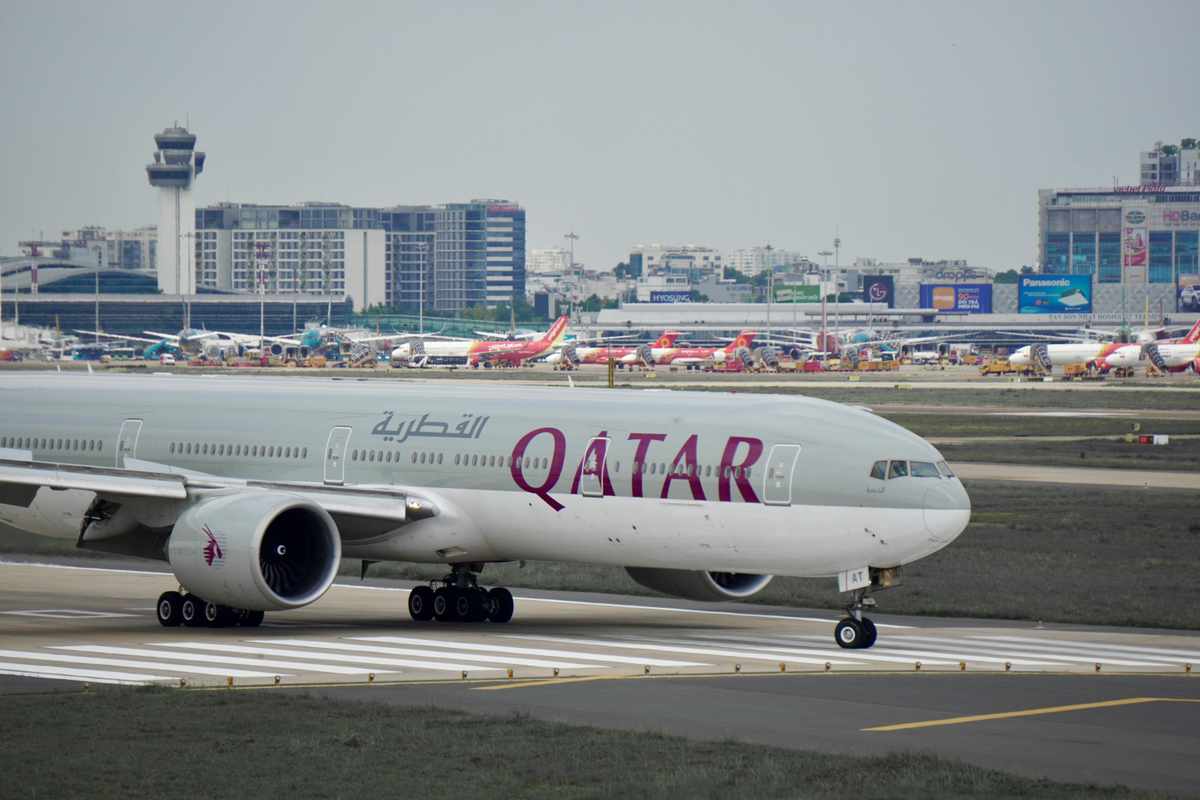French President Emmanuel Macron’s recent comments have sparked renewed debate about whether France will recognize a Palestinian state. As of July 25, 2025, France has not formally taken this step, even as global momentum for Palestinian recognition grows. This decision, or lack thereof, has wide-reaching effects on international relations, immigration, and the daily lives of people in the region.
Current Status: France and Palestinian State Recognition

Despite speculation and political discussion, France has not officially recognized the State of Palestine. French officials continue to support a two-state solution, which means they want both Israel and Palestine to exist peacefully side by side. However, France’s government has made it clear that any move toward recognition will depend on future diplomatic talks and coordination with other European Union (EU) partners.
This position places France in line with other major Western countries. None of the G7 nations—including France, Germany, Italy, the United Kingdom, the United States 🇺🇸, Canada 🇨🇦, and Japan—have recognized Palestine as a state. Instead, these countries argue that recognition should come as part of a negotiated peace agreement between Israel and the Palestinians.
Recent Developments and Global Trends
The issue of Palestinian state recognition has gained attention in recent years, especially after Ireland, Spain, and Norway announced their recognition in 2024. These moves brought the total number of United Nations member states recognizing Palestine to 147 out of 193, which is just over 75%. However, France did not join this group, and there have been no major new recognitions by Western states in 2025.
List of Countries Recognizing Palestine
Recognition of Palestine is strongest in Africa, Asia, the Middle East, and Latin America. Here is a breakdown of the countries that have taken this step as of July 2025:
Africa:
– Algeria
– Angola
– Benin
– Botswana
– Burkina Faso
– Burundi
– Cameroon
– Cape Verde
– Central African Republic
– Chad
– Comoros
– Republic of the Congo
– Democratic Republic of the Congo
– Djibouti
– Egypt
– Equatorial Guinea
– Eritrea
– Eswatini
– Ethiopia
– Gabon
– Gambia
– Ghana
– Guinea
– Guinea-Bissau
– Ivory Coast
– Kenya
– Lesotho
– Liberia
– Libya
– Madagascar
– Malawi
– Mali
– Mauritania
– Mauritius
– Morocco
– Mozambique
– Namibia
– Niger
– Nigeria
– Rwanda
– Sahrawi Arab Democratic Republic
– São Tomé and Príncipe
– Senegal
– Seychelles
– Sierra Leone
– Somalia
– South Africa
– South Sudan
– Sudan
– Tanzania
– Togo
– Tunisia
– Uganda
– Zambia
– Zimbabwe
Asia:
– Afghanistan
– Bahrain
– Bangladesh
– Bhutan
– Brunei
– Cambodia
– China
– India
– Indonesia
– Iran
– Iraq
– Jordan
– Kazakhstan
– Kuwait
– Kyrgyzstan
– Laos
– Lebanon
– Malaysia
– Maldives
– Mongolia
– Myanmar
– Nepal
– North Korea
– Oman
– Pakistan
– Philippines
– Qatar
– Saudi Arabia
– Singapore
– Sri Lanka
– Syria
– Tajikistan
– Thailand
– Timor-Leste
– Turkmenistan
– United Arab Emirates
– Uzbekistan
– Vietnam
– Yemen
Europe:
– Albania
– Belarus
– Bosnia and Herzegovina
– Bulgaria
– Cyprus
– Czech Republic
– Georgia
– Hungary
– Iceland
– Malta
– Montenegro
– North Macedonia
– Poland
– Romania
– Russia
– Serbia
– Slovakia
– Slovenia
– Sweden
– Ukraine
– Vatican City (Holy See)
Latin America and the Caribbean:
– Argentina
– Bolivia
– Brazil
– Chile
– Colombia
– Costa Rica
– Cuba
– Dominican Republic
– Ecuador
– El Salvador
– Guyana
– Honduras
– Jamaica
– Mexico
– Nicaragua
– Panama
– Paraguay
– Peru
– Suriname
– Trinidad and Tobago
– Uruguay
– Venezuela
Oceania:
– Fiji
– Papua New Guinea
– Samoa
– Solomon Islands
– Timor-Leste
– Vanuatu
Middle East:
– All Arab League members except for a few, such as Egypt and Jordan, which have peace treaties with Israel but still recognize Palestine.
Countries That Do Not Recognize Palestine
The main countries that have not recognized Palestine include the United States 🇺🇸, Canada 🇨🇦, Australia, most Western European states (including France, Germany, the United Kingdom, and Italy), Japan, and South Korea. These countries often cite the need for a negotiated peace agreement as the reason for withholding recognition.
Diplomatic and Immigration Implications
Recognition of Palestine by a country allows for the establishment of embassies and formal diplomatic ties. This can make it easier for Palestinians to travel, study, or work in those countries, as diplomatic relations often lead to more open visa policies and greater cooperation on immigration matters.
Countries that recognize Palestine also tend to support its participation in international organizations, such as the United Nations, where Palestine holds non-member observer state status. This support can help Palestinians access international aid and development programs, which are critical for people living in the West Bank and Gaza.
Political Pressure and International Relations
Recognition is not just a symbolic gesture. It is often used as a way to put pressure on Israel and the wider international community to move toward a two-state solution. By recognizing Palestine, countries signal their support for Palestinian self-determination and their opposition to the ongoing occupation.
For France, the decision to recognize Palestine is complicated by its close ties to both Israel and the Arab world. French officials have repeatedly said that recognition should be part of a broader peace process, not a unilateral move. This careful approach reflects France’s desire to play a constructive role in Middle East diplomacy while maintaining good relations with all sides.
Expert Perspectives and Analysis
Most Western governments, including France, argue that recognizing Palestine outside of a peace agreement could make negotiations harder. They worry that it might encourage one side to avoid compromise or lead to more tension in the region.
On the other hand, many countries in Africa, Asia, and Latin America see recognition as a way to support Palestinian rights and push for a fair solution. These countries often point to the long history of occupation and the need for international solidarity.
Some European Union members have recognized Palestine on their own, but the EU as a whole has not. This is because the EU requires agreement from all member states before taking such a step, and there is still disagreement among them.
Recent Statements from France
French leaders have made several statements about the issue in recent years. President Macron and other officials have said that France is open to recognizing Palestine in the future, especially if peace talks remain stalled. However, they stress that any move should be coordinated with other EU countries to have the greatest impact.
In 2024, after Ireland, Spain, and Norway recognized Palestine, there was renewed debate in France’s parliament and media. Some lawmakers and activists called for immediate recognition, arguing that it would show support for peace and justice. Others warned that acting alone could weaken France’s influence in the region.
Impact on Palestinians and Immigrants
For Palestinians, recognition by more countries means greater access to international support and a stronger voice in global forums. It can also make it easier for Palestinian students, workers, and families to get visas, scholarships, and other opportunities abroad.
For immigrants and refugees in France, the government’s position on Palestinian recognition can affect their daily lives. Those with Palestinian passports or documents may face more challenges in getting legal status, travel permits, or access to services. Recognition could help address some of these issues by making it easier for French authorities to process documents and provide assistance.
Broader Implications for the Middle East
The question of Palestinian statehood is central to peace in the Middle East. Many experts believe that a two-state solution is the only way to end the conflict between Israelis and Palestinians. Recognition by countries like France could help restart peace talks or encourage both sides to make compromises.
However, there are risks. Some fear that recognition without a peace agreement could lead to more violence or make it harder to reach a deal. Others argue that the current approach has not worked and that new steps are needed to break the deadlock.
Solution-Oriented Approaches
Many international organizations and experts suggest that countries like France can play a positive role by:
- Supporting direct negotiations between Israel and the Palestinians
- Providing humanitarian aid and development support to Palestinian communities
- Encouraging other EU members to adopt a common position on recognition
- Promoting dialogue and understanding between different communities in France
France can also work with the United Nations and other international bodies to support peace efforts and protect the rights of all people in the region.
Official Resources and Further Reading
For readers seeking the latest updates on France’s position and international recognition of Palestine, the French Ministry for Europe and Foreign Affairs provides official statements and policy details. You can visit their website for the most current information: French Ministry for Europe and Foreign Affairs.
The United Nations also maintains records on Palestine’s status as a non-member observer state and provides updates on diplomatic developments.
Looking Ahead: What’s Next for France and Palestinian Recognition?
As of July 2025, France remains undecided on formal recognition of Palestine. The government continues to watch developments in the region and consult with EU partners. There is growing pressure from some lawmakers and civil society groups for France to take a stand, especially as more countries join the list of recognizers.
At the same time, France’s leaders are cautious. They want to make sure that any move helps, rather than hurts, the chances for peace. This means that recognition is likely to remain a topic of debate in French politics and diplomacy for the foreseeable future.
Key Takeaways for Immigrants and the International Community
- France has not recognized the State of Palestine as of July 25, 2025.
- 147 out of 193 United Nations member states have recognized Palestine, including most of Africa, Asia, Latin America, and the Middle East.
- None of the G7 countries, including France, have taken this step yet.
- Recognition affects diplomatic relations, immigration policies, and access to international aid for Palestinians.
- The debate in France is ongoing, with no immediate change expected.
As reported by VisaVerge.com, the recognition of Palestine by more countries could have important effects on immigration, travel, and international cooperation. For now, France’s position remains cautious, but the situation could change as global and regional dynamics evolve.
For those interested in the full, detailed list of all 147 countries that recognize Palestine, including dates and additional context, the Wikipedia page for “International recognition of Palestine” and the World Population Review’s 2025 country list are helpful resources.
Practical Guidance
If you are a Palestinian living in France or planning to travel there, it is important to stay informed about the latest government policies and any changes in recognition status. You can check the French Ministry for Europe and Foreign Affairs for updates and contact your local embassy or consulate for assistance with visas, legal status, or other immigration matters.
For those following the broader debate, understanding the positions of different countries and international organizations can help you make sense of the complex politics involved. Recognition is just one part of a much larger effort to achieve peace and justice in the Middle East.
Conclusion
The question of whether France will recognize a Palestinian state remains open. While most of the world’s countries have already taken this step, France and other major Western nations continue to wait for the right diplomatic moment. This cautious approach reflects the complexity of the issue and the desire to support a lasting peace. For now, the debate continues, with many watching closely to see what France will do next.
Learn Today
Recognition → Official acceptance of a state’s sovereignty by another country or international organization.
Two-state solution → A proposed resolution for Israeli-Palestinian conflict where Israel and Palestine coexist peacefully as separate states.
G7 countries → A group of seven major advanced economies including France, Germany, Italy, UK, US, Canada, and Japan.
Non-member observer state → An entity with limited United Nations participation without full membership rights or voting privileges.
Diplomatic relations → Formal interactions between countries, including embassies and treaties, enabling official communication and cooperation.
This Article in a Nutshell
France remains cautious about recognizing Palestine, awaiting coordinated EU diplomatic efforts amid growing global support. Recognition affects immigration, diplomacy, and peace processes in the Middle East.
— By VisaVerge.com








